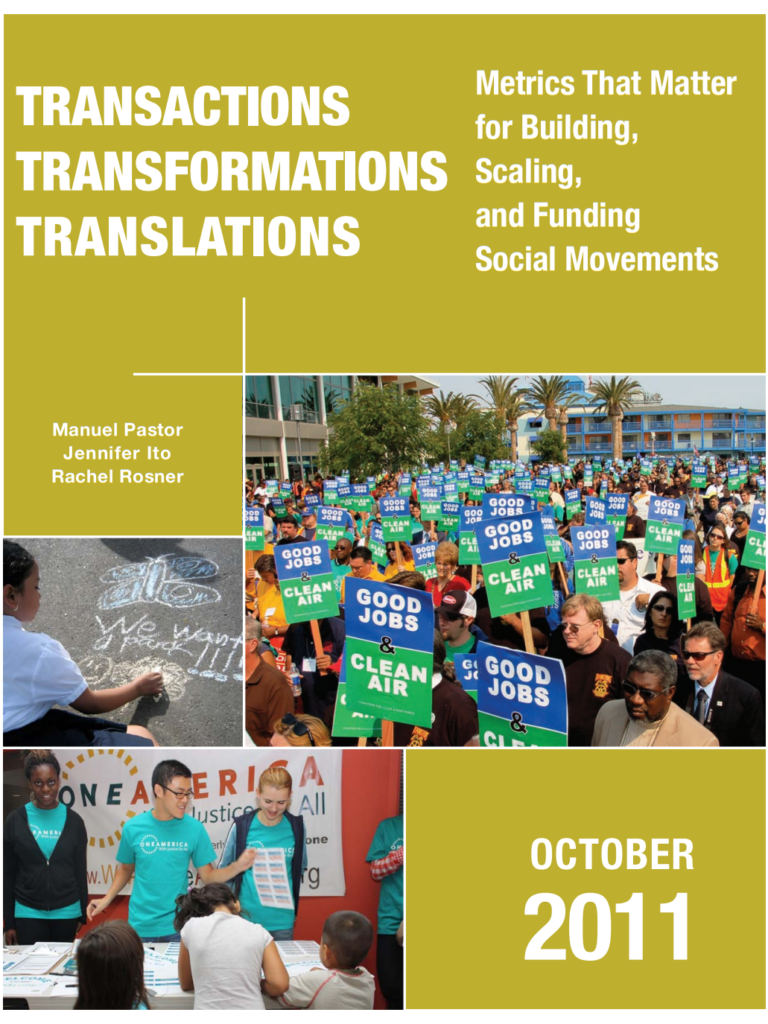
October 2011
Manuel Pastor, Jennifer Ito, and Rachel Rosner
Please note: reports dated earlier than June 2020 were published under our previous names: the USC Program for Environmental and Regional Equity (PERE) or the USC Center for the Study of Immigrant Integration (CSII).
With Occupy Wall Street grabbing headlines, many have wondered: Is this a moment or a movement, a passing fad or the start of something big, and is there even a way to tell the difference?
Transactions – Transformations – Translations: Metrics That Matter for Building, Scaling, and Funding Social Movements, a report from USC Program for Environmental and Regional Equity (PERE), provides an evaluative framework and key milestones to gauge movement building. Aiming to bridge the gap between the field of community organizing that relies on the one-on-one epiphanies of leaders and the growing philanthropic emphasis on evidence-based giving, the report stresses three main insights.
The first is that any good set of movement metrics should capture quantity and quality, numbers and nuance, transactions and transformations. They are related—an energized leader with a clear power analysis (a transformative measure) may turn out more members for a coalition rally (a transactional measure)—and the report offers a matrix that weaves together both types of metrics across ten different movement-building strategies.
The second is that a movement is more than one organization—and if the whole is to be greater than the sum of its parts, we must measure accordingly. While the report includes measures of success at the organizational level, it attempts to move beyond and focus on whether groups can align and work together to create a more powerful force for social change—suggesting that in the same way that movements need to scale up to face the challenges of our times, metrics, too, must expand to capture the whole.
The third is that metrics must be co-created, not imposed. Recognizing the gravity of the times and hoping to gauge their effectiveness, movement builders are eager to come up with a common language and framework for themselves—and are developing the tools and capacities to do so. The report suggests that the funder-grantee relationship can build on this wisdom in the field and develop a set of evaluative measures that are not onerous requirements but tools for mutual accountability.
The report also offers a set of recommendations to funders and the field, ranging from practical steps (like building a new toolbox of measures, improving the capacity to use them, and documenting innovation and experimentation) to more far-reaching suggestions about leadership development, the connection of policy outcomes with broader social change, and the need to generate movement-level measures. We, at USC PERE, hope this report contributes to a conversation about how to best capture transformations as well as transactions in social movement organizing, and how to build the broader public and philanthropic support necessary to realize the promise of a more inclusive America.



